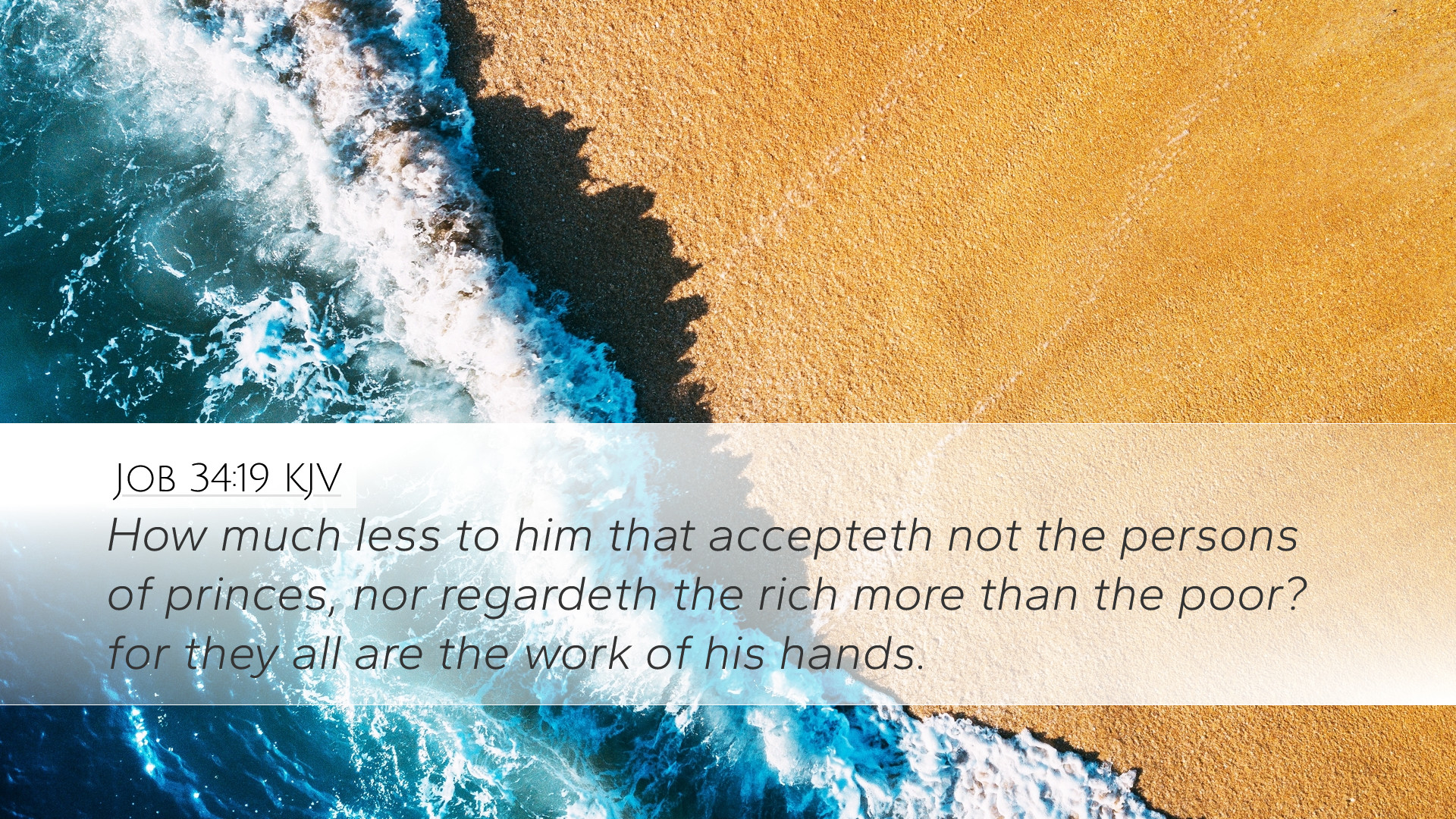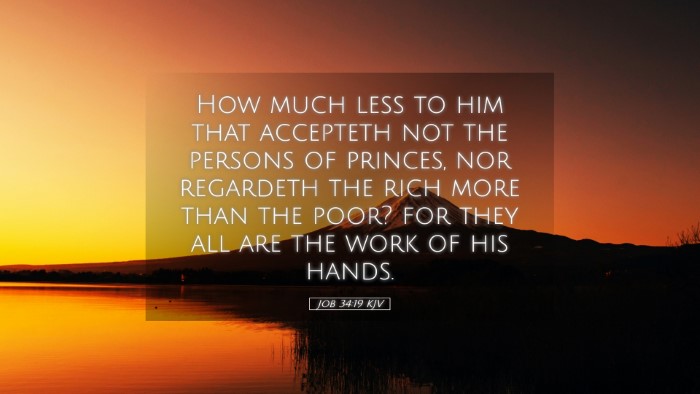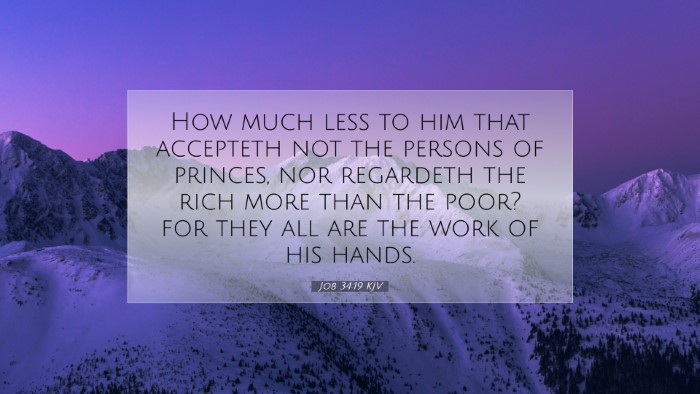Commentary on Job 34:19
Verse: "How much less to him that accepteth not the persons of princes, nor regardeth the rich more than the poor; for they all are the work of his hands."
Introduction
The Book of Job explores profound themes of suffering, faith, and divine justice. Job 34:19, in particular, highlights God's impartiality and justice, emphasizing that He does not favor the wealthy or influential over the needy. This verse offers rich theological insights that are essential for understanding God’s nature and the attributes of justice and equality inherent in His governance.
Exegetical Insights
Job 34:19 serves as a critical declaration of God's impartiality. Eliphaz, one of Job's friends, articulates a profound theological truth regarding God’s governance of human affairs. This perspective reinforces the understanding that God views all individuals equally, irrespective of their social status or wealth.
Matthew Henry's Commentary
According to Matthew Henry, this verse emphasizes that God does not show partiality, particularly towards those in high positions. God's justice is not swayed by the riches or ranks of men. He observes all men as creations of His hands. Henry notes that God’s judgments are equitable, and He does not regard the person of the rich more than the poor, pointing out that all humans are equally deserving of His scrutiny and mercy.
Albert Barnes' Commentary
Albert Barnes highlights that this verse asserts God's sovereignty over all creation, which includes His indifference to the status of individuals in society. Barnes insists that the moral actions of individuals will be judged by their character rather than their wealth. His interpretation stresses the importance of recognizing the unity in human experience, underscoring that whether one is wealthy or poor, all are subject to the same divine laws.
Adam Clarke's Commentary
Adam Clarke elucidates the significance of God’s impartial judgment. He states that to God, all individuals are of equal value and are expected to live according to His righteousness. Clarke points out that esteeming one person above another based on wealth is a human folly that God does not emulate. He emphasizes that, ultimately, it is one’s character and actions that God judges, not one’s external circumstances.
Theological Themes
The verse encapsulates several critical theological themes:
- Impartiality of God: God’s nature is described as impartial, rejecting any human standards of favoritism.
- Divine Justice: The element of justice in God’s character, ensuring that all are treated equally under His moral law.
- Human Accountability: The understanding that all are accountable to God, regardless of their earthly status.
Contemporary Applicability
For pastors, students, theologians, and Bible scholars, the implications of Job 34:19 resonate deeply in contemporary discussions about social justice and responsibility. The understanding that God does not favor the rich over the poor calls believers to practice equity and justice in their ministries and communities.
Call to Action
In light of this passage, individuals and church leaders are encouraged to:
- Recognize the intrinsic value of every person, irrespective of their economic status.
- Advocate for and practice social justice, ensuring that the needs of the marginalized are prioritized.
- Reflect on personal biases towards wealth and status and strive for an attitude of humility and service.
Conclusion
Job 34:19 serves as a powerful reminder of God’s unwavering justice and impartiality. Through the insights of esteemed commentators like Matthew Henry, Albert Barnes, and Adam Clarke, it is evident that understanding God's nature encourages believers to emulate His character in their lives. Hence, embracing the teachings of this verse not only enriches theological discourse but also inspires practical application within the body of Christ.


